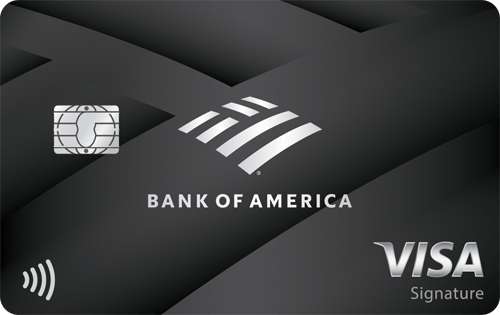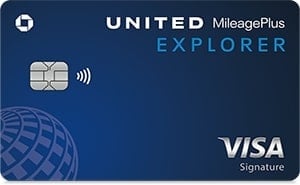TSA PreCheck® vs. Global Entry: Which Is Better?

Many, or all, of the products featured on this page are from our advertising partners who compensate us when you take certain actions on our website or click to take an action on their website. However, this does not influence our evaluations. Our opinions are our own. Here is a list of our partners and here's how we make money.
Table of Contents
Federal trusted traveler programs like TSA PreCheck® and Global Entry let you go through special security lanes at the airport — which usually means faster and less intrusive screening.
There are costs associated with applying for either option — not to mention the time and effort to complete the required interviews. But some credit cards or frequent flyer programs will cover the cost of TSA PreCheck® or Global Entry. Even if you fly only occasionally, applying could be worth it, especially if you can get reimbursed with your credit card. (Jump ahead to learn how that works, or just keep reading.)

Here’s our guide to both programs to help you choose the right expedited security program for you. Take a closer look at the pros and cons of TSA PreCheck® and Global Entry.
» Learn more: Cards with security screening benefits
The difference between Global Entry and TSA PreCheck®
Global Entry and TSA PreCheck® differ in a few important ways:
TSA PreCheck® speeds up security screenings for flights departing from U.S. airports. As the name suggests, it’s run by the U.S. Transportation Security Administration, though it works with three enrollment partners. For first-timers, it costs $78 through Idemia, $85 through Telos or $77.95 through Clear for a five-year membership. To renew TSA PreCheck® online, it costs $70 with Idemia and Telos and $68.95 with Clear.
Global Entry includes TSA PreCheck®, plus faster U.S. customs screening for international travelers arriving at U.S. airports. It's run by a different agency, U.S. Customs and Border Protection. Global Entry costs $100 for a five-year membership. While more comprehensive, the program has requirements that are more stringent and include a passport and an interview.
Here's Global Entry versus TSA PreCheck® at a glance.
TSA PreCheck® | Global Entry | |
|---|---|---|
Benefits | Expedited physical security screenings. You won’t have to remove your belt or shoes and you can keep your liquids and laptops in your bag. | TSA PreCheck® benefits, plus expedited customs screenings when reentering in the U.S. |
Cost | $77.95 - $85 ($68.95 - $70 online renewal), depending on application servicer. | $100 for five years. |
Application process | Application and interview at 500+ enrollment centers. | Application and interview at 116 enrollment centers. |
Application fees covered by certain credit cards? | ✔️. | ✔️. |

Does Global Entry include TSA PreCheck®?
Yes, Global Entry includes TSA PreCheck® benefits so you don’t need to sign up for both programs. Because of this, people with Global Entry are allowed to use dedicated TSA PreCheck® lanes.
Many credit cards that cover TSA PreCheck® or Global Entry application fees will reimburse you for either program. Because the cost factor is eliminated, you might as well go for Global Entry because it includes TSA PreCheck® benefits as well.
If you’re paying the application fees out of pocket, you might have to choose between the two programs. Global Entry is only $22 more at most, but the decision comes down to the convenience you want versus the hassle and cost to apply.
Consider Global Entry if you plan to travel abroad often and you live near or are traveling through a center for the required interview (more on that later).
The Global Entry renewal grace period has increased from six to 24 months for anyone who applies to renew before their current membership expires. Travelers arriving in the U.S. during this grace period don't need to show any special documents to use Global Entry.
If you don’t live near a Global Entry center, don’t have a passport and rarely travel abroad, TSA PreCheck® is the better choice. Here's a closer look at the programs and some tips to help choose between them.
How does TSA PreCheck® work?
When you apply for TSA PreCheck®, you'll have to pass a background check that verifies you as a low-risk traveler. Once you’re approved, the government will issue you a “Known Traveler Number,” or KTN, which you'll need to include when making airline reservations. If you add it to your airline frequent flyer account, your KTN will automatically be applied to all your reservations with that airline in the future.
Make sure you enter your Known Traveler Number when booking or checking in for a flight to get TSA PreCheck® access.
When using a KTN, you’re very likely — but not guaranteed — to get TSA PreCheck® status for your flights. You’ll see a TSA PreCheck® indicator on your boarding pass, whether paper or electronic. Eligibility is also embedded in the bar code of the boarding pass.
TSA PreCheck® status gives you access to security lanes with lighter screening:
You can leave your belt and shoes on.
Your laptop can stay in its case.
You don’t have to take liquids and gels out of your carry-on.
Most of the time, that means a quicker line. As of April 2024, 99% of TSA PreCheck® passengers waited less than 10 minutes in line, according to the TSA.
» Learn more: TSA carry-on restrictions you need to know
The TSA recommends that travelers who fly three times a year or more apply for a program that gets them access to expedited lanes.
Global Entry vs. TSA PreCheck® cost
Global Entry: $100 (includes TSA PreCheck®)
It costs $100 to apply, and the membership lasts for five years. Some credit cards and elite frequent flyer programs reimburse your application fee. This program refers to the Known Traveler Number as PASSID, but the number is used the same way.
Global Entry includes TSA PreCheck® and its benefits but also gives you expedited U.S. customs screening when traveling internationally. Upon returning to the U.S., you can use an airport kiosk that should be far faster than traditional customs inspection lines.
Global Entry also includes expedited processing at land borders with Mexico and Canada. The TSA offers an FAQ for both programs.
TSA PreCheck®: $77.95 - $85
The cost of TSA PreCheck® depends on which enrollment provider you use. It costs $78 to enroll in TSA PreCheck® at an Idemia enrollment center or $85 at a Telos enrollment center. There are more than 600 Idemia locations and only 26 Telos locations. If you enroll through Clear at an airport kiosk (where available), it will cost $77.95 alone, or $199.95 if you choose to package Clear Plus membership with your TSA PreCheck® membership.
Not matter which enrollment provider you use, the membership lasts for five years. Some credit cards and elite frequent flyer programs reimburse your application fee. After the initial application fee, TSA PreCheck® renewal only costs $70 if completed online with Idemia or Telos, and $68.95 if renewed online through Clear.
Some travel credit cards will help offset this cost as well. This program has one benefit: access to TSA PreCheck® lanes. Those lanes are available at 200-plus airports and through 90-plus airlines.
» Learn more: How to add TSA PreCheck® to your airline ticket
How to get Global Entry or TSA PreCheck® for free
A number of popular travel credit cards reimburse you for the application fee for Trusted Traveler Programs like TSA PreCheck® and Global Entry.
These are usually issued as flat-value statement credits that can be used once every few years (usually four years) to cover the cost of reapplication.
Here are some of our favorite cards that offer Global Entry and TSA PreCheck® statement credits:
$95.
$0 intro for the first year, then $95.
$550.
$95.
Statement credit of up to $100 as reimbursement when you charge the application fee for TSA PreCheck® or Global Entry to the card. Available once every 4 years.
Statement credit of up to $100 as reimbursement when you charge the application fee for TSA PreCheck, Global Entry or NEXUS to the card. Available once every 4 years.
Statement credit of up to $100 as reimbursement when you charge the application fee for TSA PreCheck, Global Entry or NEXUS to the card. Available once every 4 years.
Statement credit of up to $100 as reimbursement when you charge the application fee for TSA PreCheck® or Global Entry to the card. Available once every 4 years.
Pros and cons of Global Entry, TSA PreCheck®
For frequent travelers, Global Entry is probably preferable because it offers extra benefits when returning to the U.S. Even if you’re paying the application fee yourself, the added benefits of Global Entry cost just $22 extra at most, or $4.40 a year.
Also, you don’t have to be a U.S. citizen to get Global Entry. U.S. lawful permanent residents, Mexican nationals and citizens of Argentina, India, Colombia, United Kingdom, Germany, Panama, Singapore, South Korea, Switzerland and Taiwan are eligible for membership.
The downside? Applying for Global Entry is more of a hassle than TSA PreCheck®. Here’s why:
Passport: You must already have a valid passport to apply for Global Entry. Getting a passport comes with its own costs and paperwork. Learn more about Global Entry's specific eligibility requirements.
Interview: Both programs require you to visit an enrollment center for fingerprinting and an ID check. But Global Entry also requires an interview, and availability might be weeks or months away.
Enrollment locations: There are fewer places to apply for Global Entry — mostly at major airports, U.S. Customs and Border Protection offices and some designated enrollment centers. By contrast, TSA PreCheck® has far more enrollment locations — more than 600 nationwide as of April 2024. You can walk in during business hours or schedule an appointment.
Important considerations for both programs
Privacy
For any trusted traveler program, a potential drawback is supplying information about yourself to the government, including fingerprints and a photo. Giving up that personal information is an individual decision.
Children
Children ages 12 and younger can accompany an adult with TSA PreCheck® or Global Entry through the quicker airport security lines without having their own PreCheck® clearance. Children ages 13 to 17 can as well, but they must have the TSA PreCheck® indicator on their boarding pass.
Global Entry, however, doesn't allow children to go through expedited customs screening without their own enrollment in the program.
» Learn more: The guide on Global Entry for kids
Nonrefundable fees
The application fees for both programs are nonrefundable, even if your application is denied.
Traveling with others
A practical consideration with speedier security and customs lanes is your traveling companions. If they don't have the same status, you may find yourself waiting for a while on the other side of the security screening area for your family or friends.
Global Entry application vs. TSA PreCheck®
If you decide TSA PreCheck® or Global Entry is right for you, here are the online forms to get started:
These application sites guide you through the process, help you find an enrollment center and list the documents to bring.
Do you have an upcoming trip or long layover at an airport that offers Global Entry interviews? That could be an ideal time to schedule a walk up appointment interview without making a special trip to a far-flung enrollment center. Or at many airports, you could use Enrollment on Arrival when returning to the U.S. from an international trip to finish the interview without an appointment.
TSA PreCheck® appointment process
After you submit your online application, you need to schedule an appointment to get your fingerprints and background check completed. According to TSA, the appointment should take about 10 minutes.
There are over 600 enrollment centers, and you can search for the center nearest you on the TSA website.
Global Entry appointment process
Once you’ve submitted your application for Global Entry, the CBP will process your application. For new applicants, the review process can be take four to six months. Once your application is conditionally approved, you will be notified that it's time to schedule an interview.
At this point, you can either schedule an interview at one of the enrollment centers or take advantage of the Enrollment on Arrival program. This program allows applicants who have been conditionally approved to walk-in to a Global Entry enrollment center once they arrive in the U.S. after an international flight and complete their interview before they leave the airport.
The majority of EoA centers are located within the U.S. However, there are also EoA centers at international airports (in Aruba, Bermuda, Canada, Ireland, the Bahamas and UAE), but these locations may have limited hours.
» Learn more: Global Entry appointments: What to expect
Other Trusted Traveler programs for U.S. citizens
For $50, or half the price of Global Entry, you'll get the equivalent of Global Entry privileges, along with Canada. The bad news: An interview is needed, and it must take place at a border-crossing facility.
So it makes sense to apply only if you live near the Canadian border or will be traveling through and can coordinate the interview with your travel plans. A NEXUS membership lasts for five years, and memberships for children under 18 years of age are free.
» Learn more: What is the NEXUS card and what is it worth it?
This border-crossing program with Mexico offers similar benefits to NEXUS, but costs $122.25 for five years. Enrollment centers are only on the U.S. southern border.
» Learn more: What is the SENTRI pass and how does it work?
Clear is a prescreening program administered by a private company. It uses biometrics, such as fingerprint and iris scans, to confirm your identity at a kiosk. You must still go through physical security screenings at participating airports, but you can bypass the identification check and get straight to the conveyor belt and security scanners.
As of 2024, Clear is available at about 60 airports, stadiums and other venues nationwide. However, if you want Clear's airport security benefits, you need to finish the registration process at an airport location.
Clear now offers TSA PreCheck® enrollment, and for a bundled, discounted price.
Clear doesn't qualify you for the light TSA PreCheck® screening. You can use Clear and TSA PreCheck® together, though. Clear also lets you cut the security line at several stadiums, such as Major League Baseball parks.
» Learn more: TSA PreCheck® vs. Clear: Which is better?
This choice is considerably more expensive at $189 per year. (Remember, the government programs’ fees cover five years.) Delta Air Lines and United Airlines free and discounted memberships to frequent flyers.
The American Express® Green Card offers up to $100 per year in statement credit when you use the card to pay for your Clear membership fee. Terms apply.
Clear membership also comes with Preferred Plus status in Avis's loyalty program. Avis Preferred Plus status includes perks like:
A free, single-car class upgrade upon availability.
The ability to earn additional bonus points on each rental.
Access to exclusive offers and promotional discounts.
You would typically need to spend $4,000 on qualifying Avis purchases or complete 10 rentals in a calendar year to qualify for Avis Preferred Plus.
» Learn more: How to get a Clear membership through airline loyalty
For military personnel
TSA PreCheck® status is available for free to U.S. armed forces service members, including those serving in the Coast Guard, Reserves and National Guard.
» Learn more: The guide to TSA PreCheck® for military
Should I get Global Entry or TSA PreCheck®?
In most cases, Global Entry is a better choice, especially if you travel internationally. Not only does it include TSA PreCheck® but it will also expedite your re-entry back into the U.S. when you arrive from abroad. If you’re paying out of pocket, Global Entry is only $22 more.
There are also many credit cards that reimburse the cost of either program, so you may already be able to apply for Global Entry for free essentially. However, Global Entry has fewer enrollment locations than TSA PreCheck® does, so take into consideration the time and effort you might have to spend going to the interview.
How to maximize your rewards
You want a travel credit card that prioritizes what’s important to you. Here are some of the best travel credit cards of 2024:
Flexibility, point transfers and a large bonus: Chase Sapphire Preferred® Card
No annual fee: Bank of America® Travel Rewards credit card
Flat-rate travel rewards: Capital One Venture Rewards Credit Card
Bonus travel rewards and high-end perks: Chase Sapphire Reserve®
Luxury perks: The Platinum Card® from American Express
Business travelers: Ink Business Preferred® Credit Card
IHG One Rewards Premier Credit Card
Travel
Hotel
Earn 5 free nights at an IHG property after $4k in spend (each night valued at up to 60k points).








